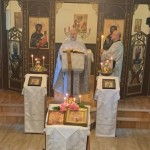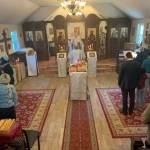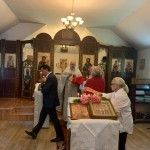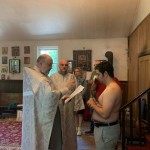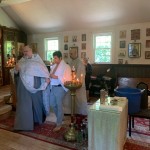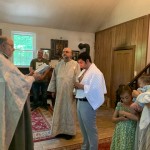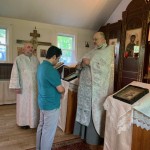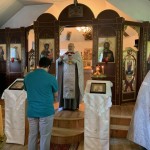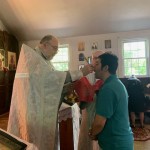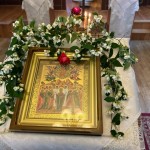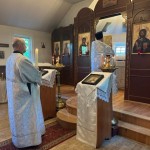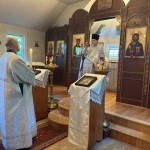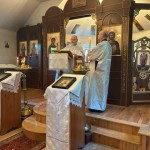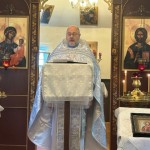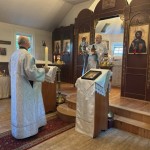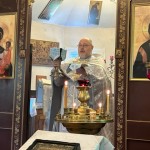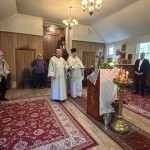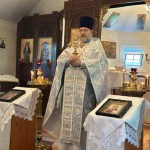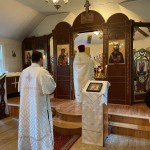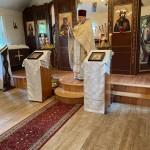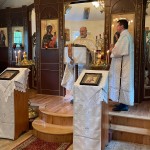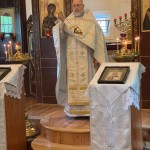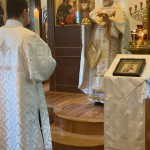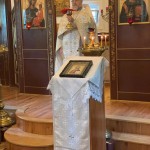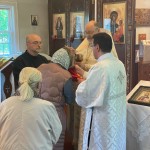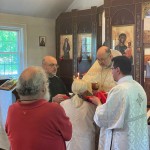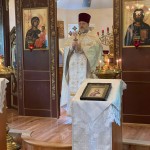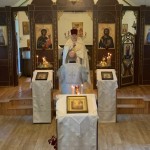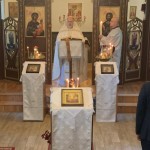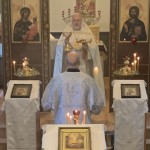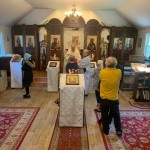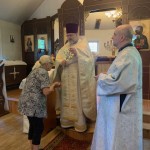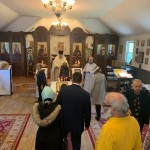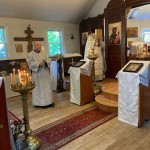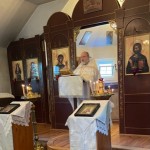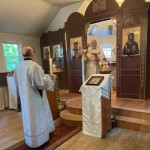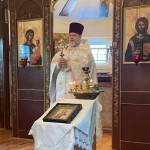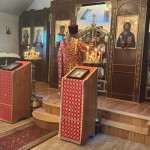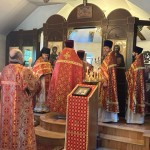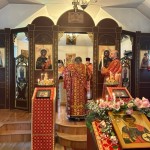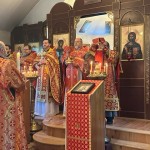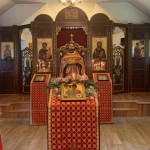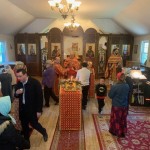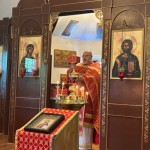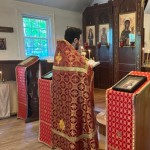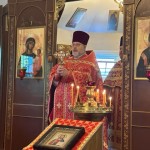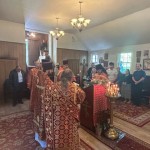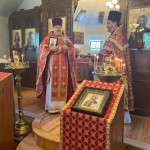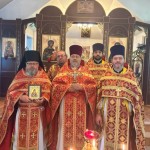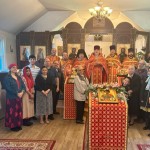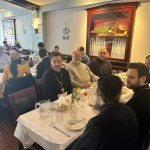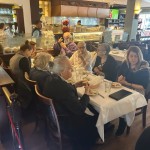On May 28, on the Sunday of the Holy Fathers of the First Ecumenical Council, Rector of St. George Church, Archpriest Igor Tarasov served the Divine Liturgy in our parish temple. After the reading from the Holy Gospel he preached the following homily:
“Dear brothers and sisters in Christ! Following the Church’s spiritual experience of the Ascension, on today’s Sunday the Church draws our attention to the teaching of the I Ecumenical Council, calling us to glorify the Holy Fathers who gathered there”.
“That first Ecumenical Council which took place in the year 325 in the city of Nicaea, discussed a very important question: who is the Lord Jesus Christ? Is He the best creation of God or the Son of God? Is He the true God or a supreme being lower than God? Is He created by God or is God Himself? We may wonder whether these discussions are important. Some may say that it is not so crucial because the main thing is that we know Jesus Christ, we know about His life, His teaching and His works. Why do we need those complicated theological quarrels?”
“Dear brothers and sisters! It is so important for us because it concerns everyone. If Christ is not the Son of God, if He is not the true God, then nothing supernatural or miraculous may happen in our life because we may just believe in God but rely on our personal strength and approach God only by our human efforts. But if we know that our Lord Jesus Christ is the Son of God, that He is the true God, and being the true God, He is with us “always, even to the end of the age” (Mt. 28, 20), then we understand that our faith cannot be in vain. Despite our weakness, our inability to live a righteous life, despite our unworthiness, we don’t lose hope. Why? Because we know that Christ, the Son of God came into the world, so”whoever believes in Him should not perish but have everlasting life” (Jn. 3, 16)”.
“If Jesus Christ is the true God, He has a power to save us. If He is the true God, it is in His power to forgive our sins, to cleanse and sanctify us. If He is the true God, it is in His power to grant us eternal life. And if He is the true God, it is in His power to help us in our temporary life”.
“Thus we begin to understand the words of today’s Gospel lesson: “And this is eternal life, that they may know You, the only true God, and Jesus Christ whom You have sent” (Jn. 17, 3). No one comes to God except through His Son, Jesus Christ (Mt. 11, 27; Jn. 14, 6). In the same way, if we see the light of the day, we know about the sun. Thus if we believe, we come to know the true God. If we hear someone speaking, we come to know that person, we begin to know about his knowledge and his intellect. Thus through Jesus Christ, the Word of God incarnate, through the Son of God and the Son of Man we come to know the true God”.
“But how could we know Him if we have a limited mind and weak human senses? We can know Him through the life of the Church of Christ. The power of God manifests itself in the Church where Christ is really and truly present. This is the essence of our faith and, therefore, that erroneous teaching which was discussed at the I Ecumenical Council was so threatening and deceiving. At those times some priest named Arius did not believe that Christ is the Son of God, did not believe that Christ was not created, but considered that Jesus is the best creature of God. If it was so, God would not be with us. God would be separated from us. He would be very remote, He would be inaccessible as it was before our Lord Jesus Christ came into the world. But after His coming into the world the true God stood in our midst. He is close to us. He is in our lives, in our souls. He is in the Church of Christ to which we belong. And in that Church He abides to the end of age”.
“Such is the meaning of those theological controversies that were discussed at the I Ecumenical Council of Nicaea. And the Holy Spirit made the Fathers of the Council understand and define the faith in the Lord Jesus Christ in the way we confess it. In that way the Holy Spirit revealed the true and firm teaching about the divinity of Christ to the Church. Let us then firmly keep that faith of ours, cherish it in our hearts and follow it in our life”.
During the Litany of Fervent Supplication the Rector had a petition for the suffering country of Ukraine and its people. He also added a commemoration of the “suffering Ukrainian land” at the Great Entrance.
During preparation for Holy Communion the choir director performed hymns dedicated to the Holy Fathers of the I Council.
After the dismissal of the Liturgy Fr. Igor made the announcements, especially regarding our June schedule and the schedule of the Pentecost services.
Following the Liturgy the Rector performed the memorial Litia to commemorate Raisa Stanislavskaya on the 40th day of her repose.
The Rector also performed the Mystery of Baptism over David Trujillo who desired to convert and to join the Holy Orthodox Church. Following the Sacraments of Baptism and Chrismation David received his first Holy Communion.
After all the services Fr. Igor and parishioners had coffee and refreshments prepared by Malyshev family to commemorate their departed relative Raisa Stanislavskaya.

